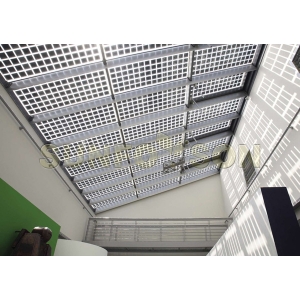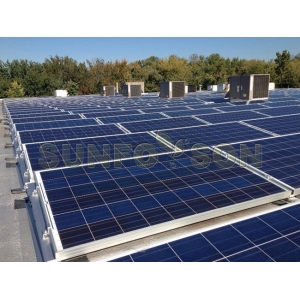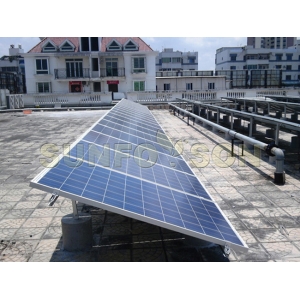Brazil's
National Electric Energy Agency (ANEEL) has approved modifications to the
nation's draft net metering regulations with the purpose of boosting the
program. The agency forecasts that these modifications will enable the
installation of 4.5 GW under net metering by 2024, and the new rules will take
effect on March 1, 2016.
The nation's
PV sector has welcomed the new rules. Brazilian Solar Photovoltaic Energy
Association (ABSolar) Executive Director Dr. Rodrigo Sauaia told pv magazine that he considers the changes “very
important and very positive” for the PV sector.
The
modifications affect access to the program in terms of the process and the type
of projects admitted with the goal of making the program more attractive. This
includes increasing the maximum capacity of installations from one megawatt to five
megawatts. The period over which projects can accumulate credits will also
increase from 36 to 60 months.
One
of the larger changes introduced is a “remote self-consumption” mechanism, also
known as Virtual Net Metering. Under this mechanism, net metering credits can
be applied to other locations that belong to the same account holder. It also
opens up the program to groups of consumers, by allowing the electricity
generated to be distributed between multiple accounts.
The
new regulations reduce the processing time for projects 75kW or smaller,
referred to as “micro-generation” projects, to 34 days from the current 82
days.
The sector
celebrates the improvements
ABSolar
Executive Director Sauaia has described the new rules approved by ANEEL as
“historic for the photovoltaic sector”. The association participated in the
process of implementing the modifications, which lasted for several months.
With
the inclusion of a mechanism for virtual net metering and the possibility that
multiple electricity consumers can participate together in the program, the
policy is greatly expanded beyond those in other Latin American nations.
“Brazil
has positioned itself as one of the nations most advanced in its ambition,”
according to Sauaia.
The
approval of this new regulatory framework at the national level comes at a time
when various Brazilian states are also creating measures to support
self-consumption PV installations. At the beginning of this month, the states
of Bahia, Maranhão, Mato Grosso and the Federal District applied tax exemptions
for these types of installations.
This
follows the introduction of similar exemptions in the states of São Paulo and
Pernambuco at the beginning of the year.
ANEEL
reports that by October a total of 1,285 installations have registered under
net metering, and 96% of these are PV systems. With the modifications, the
agency forecasts that the nation will reach 1.2 million installations in the
year 2024.















